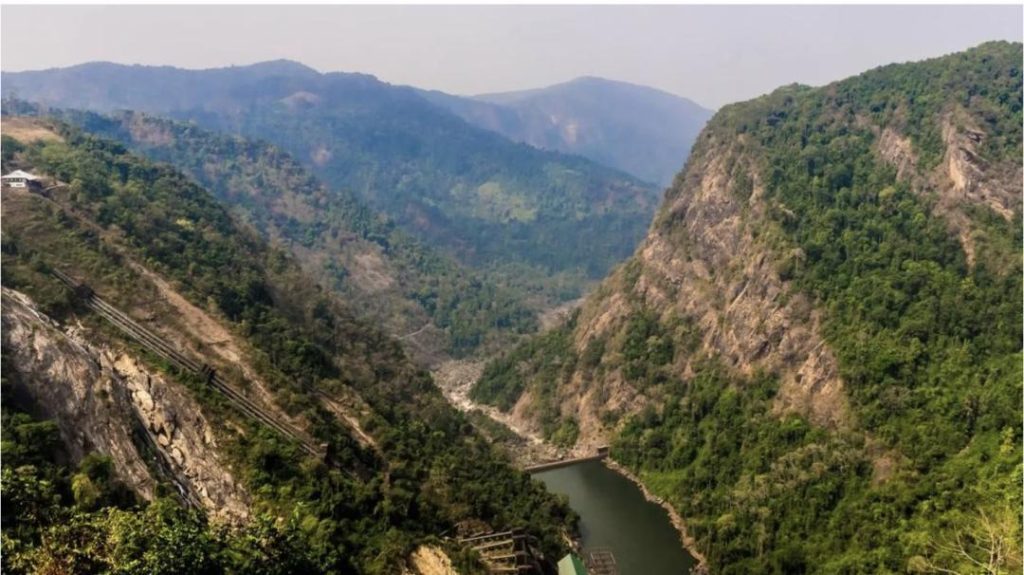
Karnataka: Allegations Mar Sharavathi Hydroelectric Project
The Sharavathi pumped storage hydroelectric project, a massive infrastructure venture, has sparked intense debates and concerns over its potential ecological impact on the Western Ghats. Environmentalists and locals have raised red flags, warning of irreversible damage to the region’s rich biodiversity. As Karnataka’s forest and tree cover stands at a mere 20%, the stakes are higher than ever before.
The Sharavathi project, touted as a major power generation initiative, aims to harness the energy of the Sharavathi River, which flows through the Western Ghats. The project involves building a dam across the river, creating a reservoir, and constructing a power plant. While proponents claim it will boost the state’s power generation capacity, critics argue that the project will have devastating consequences for the environment.
One of the primary concerns is the destruction of a 360-acre wildlife sanctuary, which is home to a diverse range of flora and fauna. The sanctuary is situated in the Western Ghats, a UNESCO-designated World Heritage Site, recognized for its unique biodiversity and ecological significance. The destruction of this sanctuary will not only harm the local ecosystem but also have far-reaching consequences for the region’s ecological balance.
Environmentalists and local communities have been vocal in their opposition to the project, citing concerns over the potential loss of biodiversity, damage to the soil, and disruption of natural habitats. They argue that the project will lead to the destruction of forests, loss of water sources, and the displacement of local populations. Furthermore, they claim that the project will exacerbate the existing environmental issues in the region, including soil erosion, landslides, and pollution.
Another major issue is the allegations of corruption and irregularities surrounding the project. Critics argue that the project has been hurriedly pushed through, with little regard for environmental and social impact assessments. There have been reports of irregularities in the bidding process, with some contractors allegedly being favored over others. This has raised concerns about the transparency and accountability of the project’s implementation.
The Karnataka government has been accused of ignoring the concerns of environmentalists and local communities, opting instead to push through the project without proper consideration for its ecological and social implications. Environmental activists have been vocal in their criticism of the government’s approach, warning that the project will have long-term consequences for the region’s ecology and biodiversity.
The Sharavathi project is not the only hydroelectric project in Karnataka that has raised concerns over its environmental impact. In recent years, the state has seen a surge in hydroelectric projects, with many of them being located in ecologically sensitive areas. Critics argue that the government’s focus on power generation has led to a neglect of environmental concerns, with many projects being pushed through without proper assessments or mitigation measures.
The Western Ghats, in particular, are under threat due to the rapid development of infrastructure projects in the region. The Ghats are a unique ecosystem, with a high level of biodiversity and endemism. The region is home to many endangered species, and the destruction of even a small portion of the ecosystem can have devastating consequences for the entire region.
In the face of growing concerns over the Sharavathi project, it is essential that the Karnataka government takes a more nuanced approach to environmental conservation. The state must prioritize the protection of its natural habitats and biodiversity, rather than prioritizing infrastructure development. Environmental impact assessments must be conducted with transparency and thoroughness, and the concerns of local communities and environmentalists must be taken into account.
The Sharavathi pumped storage hydroelectric project is a critical test case for the government’s commitment to environmental conservation. If the project goes ahead without proper consideration for its ecological and social implications, it will send a negative signal to the rest of the country and the world. On the other hand, if the project is canceled or modified to ensure minimal environmental impact, it will demonstrate the government’s commitment to responsible development and environmental conservation.
In conclusion, the Sharavathi pumped storage hydroelectric project has sparked intense debates and concerns over its potential ecological damage to the Western Ghats. Environmentalists and local communities have raised red flags, warning of irreversible damage to the region’s rich biodiversity. As Karnataka’s forest and tree cover stands at a mere 20%, it is essential that the government takes a more nuanced approach to environmental conservation and prioritizes the protection of its natural habitats and biodiversity.
Source:






